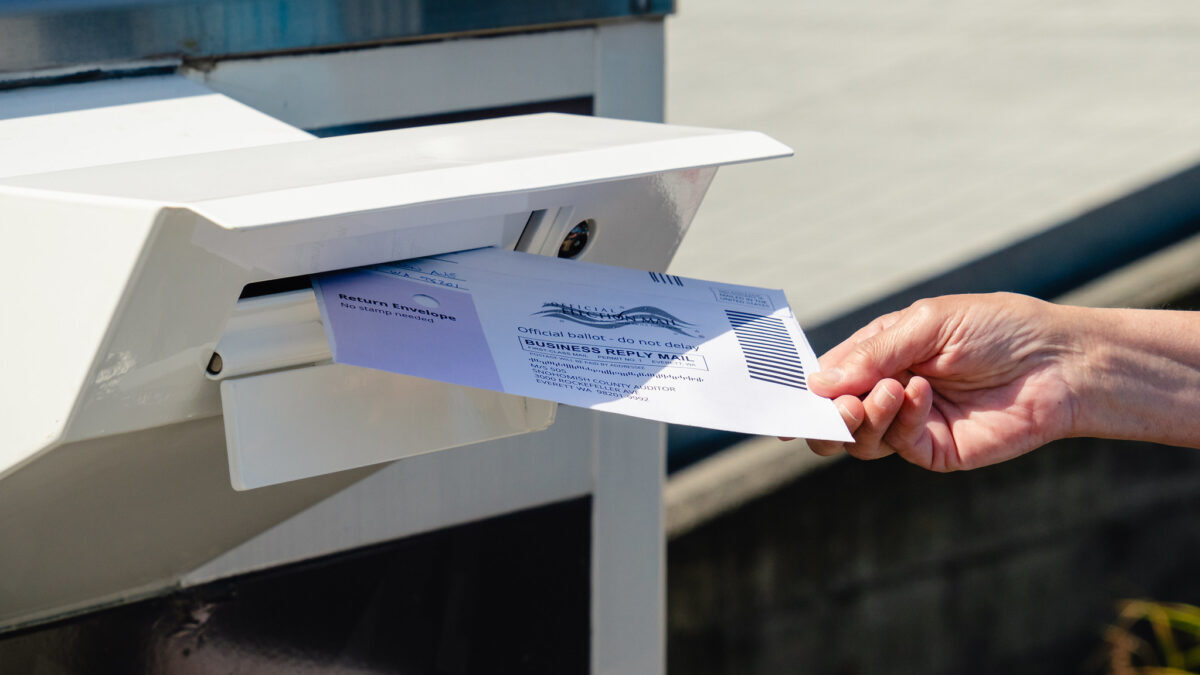
As several states prepare to tabulate primary ballots after polls close Tuesday, California is still counting ballots cast two weeks ago during the state’s March 5 elections.
As of this article’s publication, unofficial election results show that 95 percent of votes have been tabulated in California’s Democrat presidential primary, versus 93 percent in the Republican contest. In the state’s Senate primary, 92 percent of votes have been finalized, with many ballots in several congressional races also still awaiting tabulation.
While it’s clear presidential candidates like Joe Biden and Donald Trump won their respective primaries, the failure to provide California voters completed results by election night shines a light on the state’s chaotic election system. Results like these discourage voters’s trust in U.S. elections.
Like many states, California used the 2020 Covid-19 outbreak as an excuse to expand the use of unsupervised mail-in voting. In September 2021, Democrat Gov. Gavin Newsom signed legislation making permanent the state’s policy of mailing a ballot to every entry on California’s voter registration lists. The law also mandated localities make ballot drop boxes available “up to 28 days before election day,” according to the Los Angeles Times.
A Public Interest Legal Foundation report released after the 2022 midterms discovered that, as Victoria Marshall wrote in these pages, election officials rejected 226,250 mailed ballots. At the time of the report’s publication, more than 10 million mail-in ballots were “unaccounted for.”
Delayed election results also stem from California’s embrace of same-day voter registration. Those who register on Election Day are required to fill out a provisional ballot, leaving election workers to verify those voters’ eligibility in the days and weeks that follow.
California also counts mail-in ballots postmarked by Election Day and received by local officials up to seven days after the ostensible election date. According to The New York Times, election officials must also “contact the voter to give that person the opportunity to correct,” or “cure,” a ballot if their signature does not match the one on file with the state. Voters have until two days before the election’s certification to correct any errors on their ballot.
Not surprisingly, given such rules, officials are also allowed to take up to 30 days to count ballots in California. Democrats are fully exploiting such “election month” policies passed through the fully Democrat-run state government.
On Friday, Politico reported that Newsom and leftist allies are aiming to use California’s extensive ballot alteration possibilities to salvage a Democrat-supported ballot measure. According to the report, Newsom’s Campaign for Democracy PAC sent emails to supporters Thursday night, “asking them to help reach out to Democrats who have had their ballots rejected — for reasons like forgetting to include a signature — in an effort to get their ballots counted.”
The measure is Proposition 1, which would restructure the state’s Mental Health Services Act and greenlight “$6.38 billion in bonds to fund housing for homeless individuals and veterans, including up to $4.4 billion for mental health care and drug or alcohol treatment facilities and $2.0 billion for housing for homeless persons,” according to Ballotpedia.
“At a time when we face a growing mental health crisis with homelessness, Prop 1 actually diverts existing funds from mental health treatment programs so the money can be diverted to government-financed housing projects,” Reform California Chair Carl DeMaio said. “In doing so, Prop 1 raids and diverts funding from the very mental health treatment programs that currently serve homeless people!”
As of this article’s publication, unofficial results currently show Prop 1 on the verge of passing, with 50.1 percent of electors voting “yes” and 49.9 percent voting “no.” Despite the opposition already conceding defeat, Campaign for Democracy noted in its communique to supporters the results are “SO CLOSE” and told them their “commitment to volunteer could mean the difference between people getting off the streets and into the treatment they need… or not.”
“Truly. It is that close,” the email reads.
Newsom delayed his State of the State address due to the measure’s unknown fate, according to Politico.








